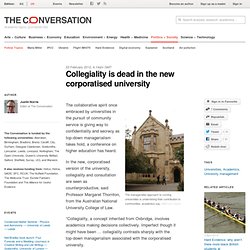

A century of challenges. Automatic Earth. Real Estate 4 Ransom. Portugal Plays By The Rules, But Economy Slumps. Hide captionA once-bustling vegetable market in Lisbon is now beyond the reach of many Portuguese — a sign of their country's economic problems.

Sylvia Poggioli/NPR A once-bustling vegetable market in Lisbon is now beyond the reach of many Portuguese — a sign of their country's economic problems. The eurozone crisis has focused attention on debt-burdened Greece spiraling into decline. Meanwhile, Portugal is seen as the international creditors' poster-child for obediently slashing spending and welfare benefits. Nevertheless, the Portuguese national debt continues to grow, and the country is mired in recession and soaring unemployment. The Portuguese national character has long been identified with Fado music. "Fado was saying, we have a destiny — we are poor and humble," she says. But after months of deep budget cuts and tax hikes, Portuguese are beginning to react.
Analysts were surprised by the huge turnout, the biggest in 30 years. Patricia De Melo Moreira/AFP/Getty Images Signs Of Crisis. Poor America - BBC Panorama - 13 Feb 2012. The Fight of the Century. As economies contract, a global popular uprising confronts power elites over access to the essentials of human existence.

What are the underlying dynamics of the conflict, and how is it likely to play out? 1. Prologue As the world economy crashes against debt and resource limits, more and more countries are responding by attempting to salvage what are actually their most expendable features—corrupt, insolvent banks and bloated militaries—while leaving the majority of their people to languish in “austerity.” The result, predictably, is a global uprising. Nations could, in principle, forestall social collapse by providing the basics of existence (food, water, housing, medical care, family planning, education, employment for those able to work, and public safety) universally and in a way that could be sustained for some time, while paying for this by deliberately shrinking other features of society—starting with military and financial sectors—and by taxing the wealthy. 2. 3. 4.
A. B. Do workers reap the benefits of productivity growth? Paul Gilding: The Earth is full. Collegiality is dead in the new corporatised university. The collaborative spirit once embraced by universities in the pursuit of community service is giving way to confidentiality and secrecy as top-down managerialism takes hold, a conference on higher education has heard.

In the new, corporatised version of the university, collegiality and consultation are seen as counterproductive, said Professor Margaret Thornton, from the Australian National University College of Law. “Collegiality, a concept inherited from Oxbridge, involves academics making decisions collectively. Imperfect though it might have been … collegiality contrasts sharply with the top-down managerialism associated with the corporatised university. “More insidiously, collegiality is believed to tolerate and even foster dissent; docility is therefore favoured on the part of academics as the new managed class.” In the past, there was a tendency to appoint judges or other prominent citizens who were conscious of procedural regularity and less likely to defer to the vice-chancellor.
The High Price of Materialism. Blaming Capitalism for Corporatism - Edmund S. Phelps and Saifedean Ammous. Please Mind the Gap. I am normally wary of statements such as this changes everything.

But there is something distinctly attractive about the Occupy Wall Street movement - especially if it is seen as a single thread in a tapestry of increasing social and civic unrest aimed at systematically deconstructing and challenging the more damaging aspects of our civilisational world-system. The ground swell of civil upheaval we are witnessing around the world (admittedly for a variety of differing reasons) seems to offer the potential for a profound global awakening to the human condition that is probably unprecedented in modern times.
Before Occupy Wall Street any serious conversation about the negative aspects (misdirected power, corruption and discrimination) locked into the global financial system occurred rarely, and only then at private gatherings of cognoscenti or during off-the-grid brainstorming conclaves within left-leaning think-tanks. 1. 2. 3. 4. 5. 6. 7. 8. 9.